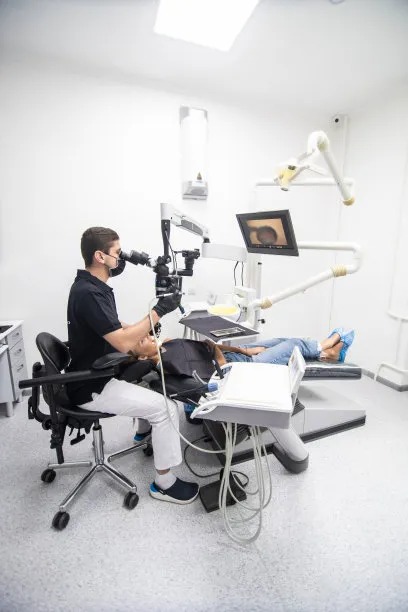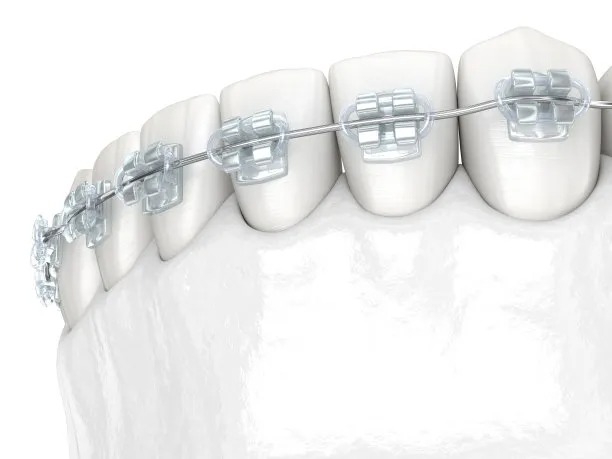Summary: Root canal treatment is a vital procedure in dentistry aimed at saving an infected or damaged tooth. Ensuring optimal oral health and recovery involves several critical safeguards before undergoing the treatment. This article discusses four essential aspects: selecting a qualified dentist, understanding the procedure and its effects, preparing for the recovery phase, and maintaining long-term oral health post-treatment. Each aspect will be examined in detail, providing insights to help patients make informed decisions about their dental care. Prior knowledge and preparation can significantly improve the outcomes of the procedure, ultimately leading to enhanced oral health and well-being.
1. Choosing a Qualified Dental Professional

One of the most crucial steps before undergoing root canal treatment is selecting a qualified dentist or endodontist. It’s essential to seek professionals who are experienced and have a solid reputation in performing root canals. Researching credentials, patient reviews, and recommendations can help ensure youre in capable hands. A qualified expert will handle your case with the necessary care and expertise.
Moreover, a good dentist will take the time to explain the procedure and its necessity clearly. They should be able to address any questions or concerns you may have, ensuring you feel comfortable and informed before proceeding. A professional who maintains open communication can help alleviate anxiety related to the treatment.
Consider arranging an initial consultation with potential dentists. This meeting allows you to gauge their approach, professionalism, and willingness to discuss your specific needs. Trust and comfort with your chosen dental professional can greatly influence your overall experience and treatment outcome.
2. Understanding the Procedure and Its Implications
Before undergoing root canal treatment, it is vital to understand what the procedure entails and its possible implications. Essentially, a root canal is performed to remove infected or damaged pulp from within the tooth, followed by sealing it to prevent further issues. Being aware of the details helps prepare for the experience.
Patients should comprehend the potential side effects and benefits of the procedure. While many may fear pain associated with root canals, advancements in dental technology and anesthesia can minimize discomfort significantly. Recognizing that the procedure aims to relieve persistent toothache and restore dental function can help shift the focus from fear to anticipation of relief.
Furthermore, understanding the recovery process is essential. Knowing what to expect immediately after the procedure—like swelling or discomfort—and how long recovery typically takes can help individuals prepare mentally and physically. An informed patient is better equipped to deal with post-procedural symptoms and follow recovery guidelines effectively.
3. Preparing for Recovery and Aftercare
Preparation for recovery plays a significant role in the success of root canal treatment. Before undergoing the procedure, patients should discuss aftercare instructions with their dentist. These guidelines may include instructions on diet, pain management, and follow-up appointments. Knowing these details allows for a smoother recovery process.
Its advisable to arrange for some time off from work or responsibilities following the procedure. This helps manage any post-treatment discomfort and allows you to rest and heal properly. Additionally, considering transportation arrangements can reduce stress on the day of the procedure, particularly if anesthesia is involved.
Post-treatment, adhering to the aftercare plan is critical. This can include over-the-counter pain relievers, applying ice packs, and following prescribed dental hygiene practices. Consistent follow-up with your dentist for check-ups ensures that any complications are swiftly addressed, contributing to a successful recovery and ensuring lasting oral health.
4. Maintaining Long-Term Oral Health
Maintaining long-term oral health after a root canal is essential to ensure the treatments success and prevent future dental problems. Regular dental check-ups are vital in monitoring the treated tooth and overall oral health. A reputable dentist will recommend a suitable schedule for these visits to keep your oral health in check.
Additionally, practicing good oral hygiene is paramount for longevity. This means brushing twice a day, flossing daily, and using mouthwash as needed. A commitment to oral care can prevent further decay and complications while supporting the health of adjacent teeth.
Lastly, it’s beneficial to adopt a healthy lifestyle that complements dental health. A balanced diet, staying hydrated, and avoiding harmful habits like smoking can positively influence oral health. Educating yourself on how these factors affect dental conditions can empower you to make better choices and maintain the health of your teeth and gums for years to come.
Summary:
In summary, ensuring optimal oral health and successful recovery from root canal treatment involves a thoughtful approach, encompassing careful selection of a qualified dentist, a clear understanding of the procedure, preparing adequately for recovery, and committing to long-term oral health. By being informed and proactive, patients can enhance their experiences and outcomes related to root canals.
This article is compiled by Vickong Dental and the content is for reference only.
Vickong Dental
Vickong Dental is a large medical group established in Hong Kong in 2008 by professors from well-known medical universities in Guangdong and Hong Kong, as well as medical doctors from key national '985' universities (including Master's supervisors and senior professors). The chain of branches brings together expert dentists with PhDs and Master's degrees from Hong Kong and Mainland China, committed to providing high-quality dental treatment.
"Vickong Dental Practices the University Motto of 'Healing and Serving Society,' with a Stable Operation for Sixteen Years. It Has Been honored with Hong Kong Enterprise Leaders's Choice,' and is a Global Trusted Implant Center for the Nobel Implant System. Recommended by Hong Kong Metro Broadcast and Guangdong Television, it Serves Customers from Over Thirty Countries and Regions, Gaining the Trust and Favor of Citizens from the Guangdong-Hong Kong-Macau Greater Bay Area and Surrounding Cities.

Thousands of customers' unanimous praise
The most recognized and highly recommended dental service by customers in the Guangdong-Hong Kong-Macau Greater Bay Area
We Ensure You Receive Detailed Care and Attention Here
Hong Kong standards, Shenzhen prices, Your Trusted English-speaking dentists

Vickong Dental Medical-Grade Instrument Disinfection Process
Vickong Dental Medical-Grade Instrument Disinfection Process

Vickong Dental Chain: A Warm and Comfortable Environment for Treatment






Appointment Hours

Q&A
Why choose Vickong Dental?
Vickong Dental practices the university motto 「Medicine to Benefit Society」, with each branch bringing together highly qualified dentists with doctoral and master’s degrees from Hong Kong and the Mainland, and has maintained seventeen years of steady operation。Recipient of 「2024 Hong Kong Enterprise Leaders Brand」, 「2025 Hong Kong Enterprise Leaders Brand」, a Nobel Biocare Global Trusted Implant Center, and a brand recommended by Metro Radio Hong Kong and Guangdong TV。
To date, we have served customers from more than thirty countries and regions,earning exceptionally high word-of-mouth recognition and trusted recommendations from residents across the Guangdong-Hong Kong-Macao Greater Bay Area and surrounding cities
We have eight major branches in Zhuhai、Shenzhen,and a consultation and service assurance center in Hong Kong,so you can book a free consultation at any time for any questions,which is very reassuring.
If I do not accept the quotation after the CT scan, will I be charged??
No! As long as the actual treatment has not started, you will not be charged any fees.
Will there be any additional charges during the treatment process?
No, there won’t be any additional charges. Before treatment begins, we will clearly explain the treatment plan and its corresponding fees. Only after the patient agrees and signs the consent form will we proceed with the dental service.
Can I pay in Hong Kong dollars?
Yes. Vickong Dental accepts payment in Hong Kong dollars. The amount will be converted based on the exchange rate of the day, and the applicable rate will be clearly communicated to you in advance.
Can I reschedule my appointment at any time?
Yes. Please contact us via **WeChat** or **WhatsApp** as early as possible, providing your original appointment time and details, along with your preferred new date and time slot for rescheduling.













